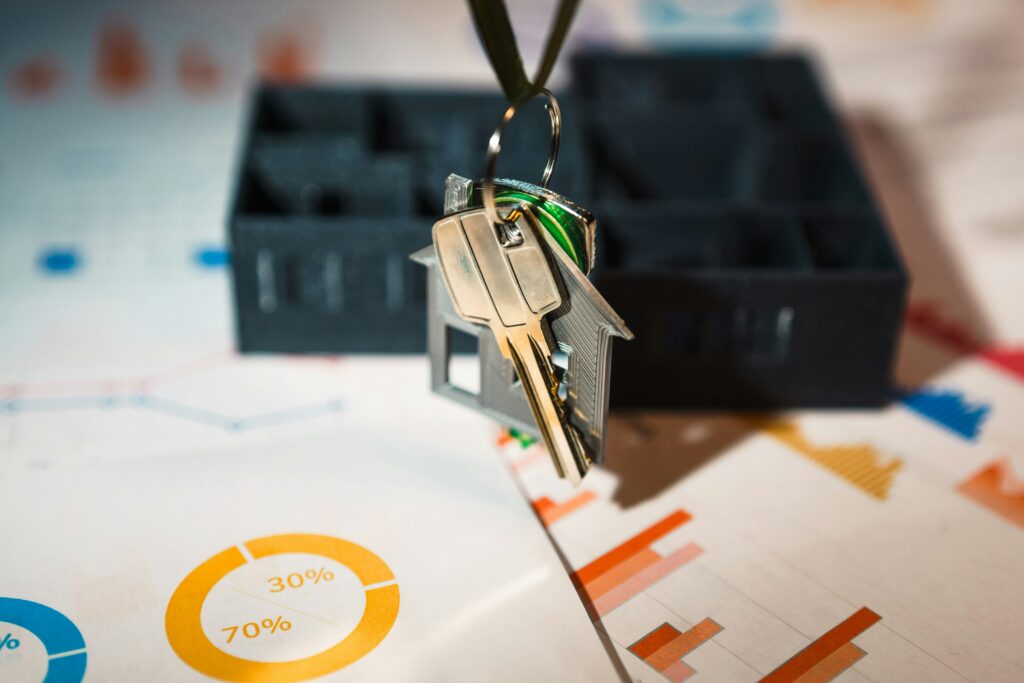
What Happens if a Joint Homeowner Becomes Bankrupt?
If you jointly own a property and one of the owners becomes bankrupt, it can be a stressful and confusing time, and you could be worried about losing your home.
Whether you’re a homeowner, co-owner, or considering selling your house, understanding what happens when a joint owner is declared bankrupt is essential to protect your share of the property and help you to make informed decisions.
Here’s what you should know if your co-homeowner becomes bankrupt.
What does it mean if one joint homeowner becomes bankrupt?
When someone is declared bankrupt, their assets, including their share of any property, are transferred to a trustee in bankruptcy and it is the trustee’s job to sell the bankrupt person’s assets to pay off their debts.
However, in the event that your property is jointly owned, the trustee now effectively controls the bankrupt owner’s share. Rest assured, your share still remains rightfully yours and you are not responsible for their debts.
For example, if you own a property 50/50 with your partner and they are declared bankrupt, their 50% share will transfer to their trustee. Their trustee may then take steps to sell that share.
Can you sell a house if one owner is bankrupt?
In short, yes. You are still able to sell a house in the case that one of the joint owners has been declared bankrupt, but the process will be different from a standard house sale. This is because the bankrupt person’s share of the property legally transfers to their trustee in bankruptcy. This trustee is responsible for managing and selling that share to repay creditors, even if the co-owner does not want to sell.
The trustee will need a court order to do this; however, the court will consider several factors before making a decision, including:
- Whether there are children or vulnerable adults living at the home
- The date of bankruptcy and the length of time since the bankruptcy occurred
- The equity in the property
- The needs and rights of the non-bankrupt co-owner
If there are children involved at the home, the court may even postpone a sale for up to 12 months to give you time to find alternative accommodation. Then, after that period, the trustee’s claim for sale usually takes priority.
There may also be exceptional circumstances in which you may be able to keep your home or delay its sale altogether. For example, if the house has been specifically modified for the needs of disabled children or you’re over the age of 70.
Could my house be repossessed?
No, a lot of people worry that bankruptcy automatically triggers house repossession, but that’s not actually how it works. Your home will not be repossessed just because one owner has been declared bankrupt as repossession only becomes a risk if the mortgage isn’t being paid. So, if the bankrupt owner used to cover part of the monthly payments and can no longer do so, you’ll need to make sure the mortgage is still paid on time to avoid the lender taking action. The trustee in bankruptcy won’t pay the mortgage as they’re only responsible for dealing with the bankrupt person’s share of the property.
Who has control over the property? What can the non-bankrupt homeowner do?
To protect your ownership of the property, there are some things you can do.
1. Buy out the trustee’s share in the property
To keep the home, there is the option to offer to buy the trustee’s share of the property. The amount you’ll pay depends on the equity in the property.
2. Sell the property yourself
Sometimes, simply voluntarily agreeing to sell the property can help you achieve a better price and reduce stress. You could negotiate with the trustee to handle the sale jointly.
3. Seek professional advice
Always speak to a professional property expert, like Sell House Fast. We can help you by explaining your rights and ensuring your interests are protected during the process.
Want to sell your house quickly?
If you’re looking to sell your house quickly because a joint owner is bankrupt, we can help. We work with homeowners to ensure a smooth, discreet, and fair sale process, without lengthy delays or added stress. We understand this can be a challenging time, so every seller is assigned a dedicated team member who tailors the process to your specific needs and timeline, ensuring a personalised and supportive experience. Get your no-obligation free cash offer and start the process today today.


